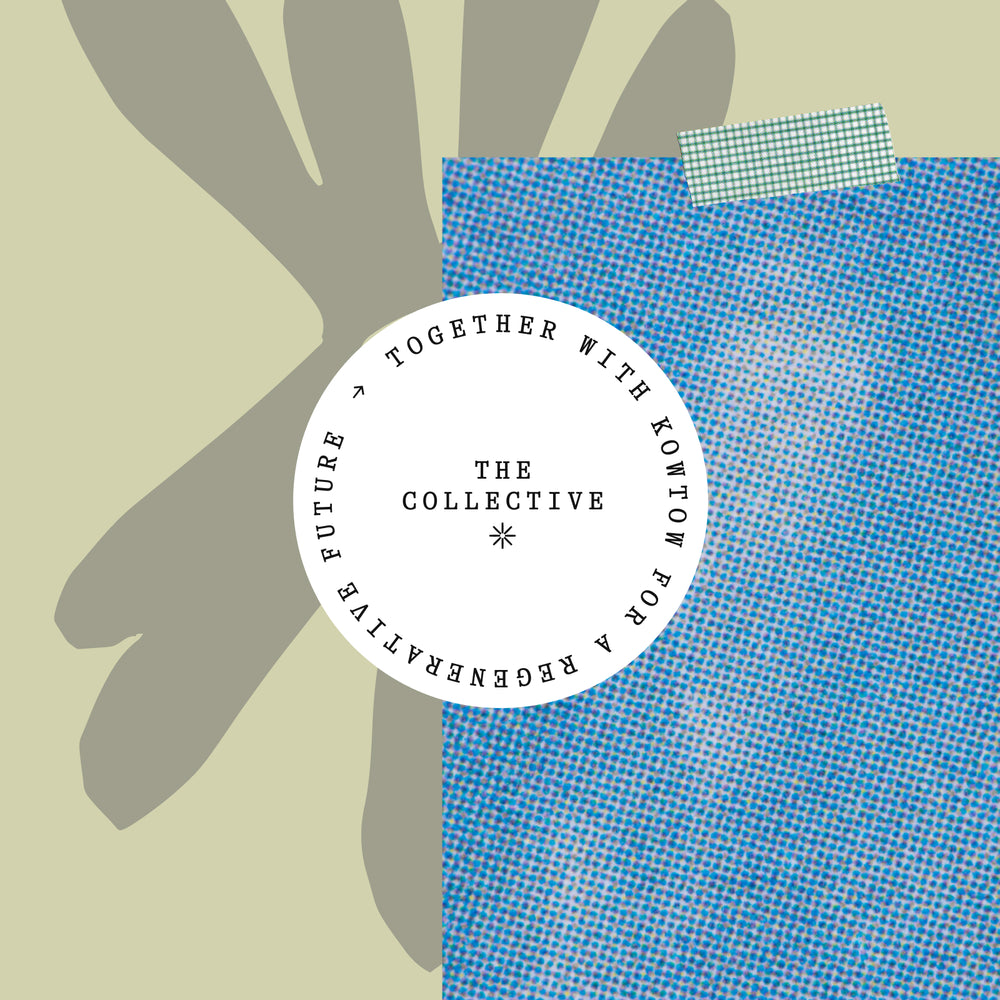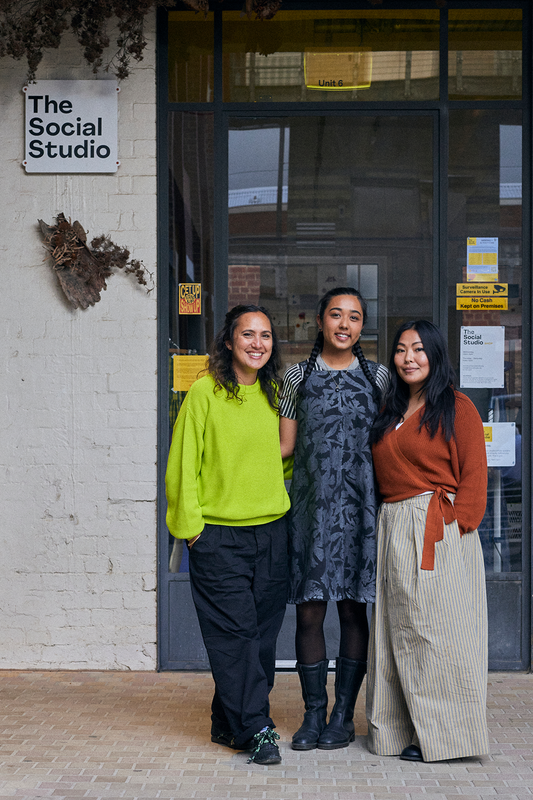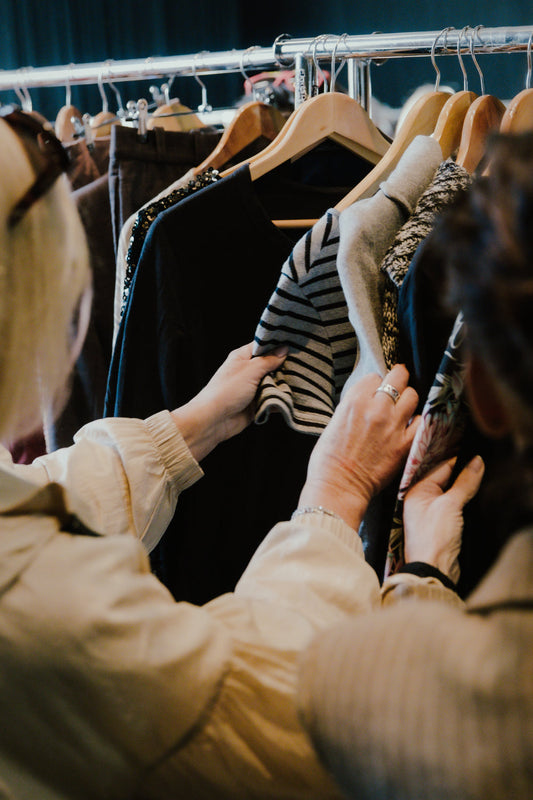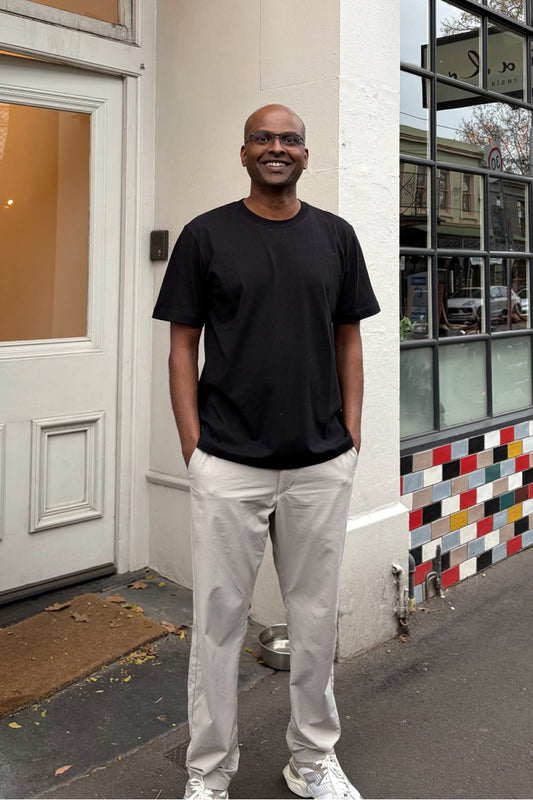
The Garden Book Tee is a celebration of Avant Gardeners - the local changemakers behind our community gardens and urban farms. Nestled within our cities, these spaces become a source of education and nourishment, green patches for community amongst the urban landscape.
Curated by the team at Kowtow, read our directory below to find out more about the local initiatives in Australia and New Zealand that inspired our collection, and how you can support gardening for a better future.
Wellington
1
5 Hospital Rd, Newtown
A regenerative and organic urban farm with community-scale composting, Kaicycle develops techniques and models to productively grow food in the city while working within natural systems to regenerate soil and ensure the production of nutrient dense food.
Kowtow uses Kaicycle’s bicycle powered collection service for our compostable scraps, which then get recycled into living compost to use on their farm.
You can support Kaicycle by attending their workshops, volunteering, or by becoming a ‘Friend of Kaicycle’ and making regular donations.
Contact: hello@kaicycle.org.nz
2
Island Bay and Berhampore, Community Orchard
Adelaide Rd, Island Bay/Berhampore
For over a decade, the Island Bay and Berhampore Community Orchard has been a growing community. With the first fruit trees planted in 2010, they have since expanded with beehives and vegetable gardens, and are now a pilot compost location for Kaicycle.
Get involved by attending their working bees on the second and fourth Saturday of each month, harvesting and sharing their organic produce.
Contact: communityfruit@gmail.com
3
31 Lawson Place, Mt Victoria
Established in 2006, Innermost Gardens operates with a non-hierarchical structure - ‘learning from each other, working together’.
At Innermost Gardens, they work to enhance their relationship with the earth by growing produce using a range of organic techniques, and provide spaces for people to develop, share and celebrate these skills.
There are many ways you can get involved at Innermost - by contributing to their composting bins, attending their working bees, or by making donations. They are currently fundraising to upgrade their community path, find their fundraiser here.
Contact: innermostgardens@gmail.com
4
112 Waipapa Rd, Hataitai
The Hataitai Community Garden is open to people of all levels of ability and commitment, and has community at its heart. Volunteers get together on the first Saturday of each month to grow and harvest vegetables that can be made into meals to share with the whole community.
From volunteering your time to providing financial support through the donation of seeds, soil and tools, Hataitai Community Garden has many ways to get involved.
Contact: coordinator@hataitai.org.nz
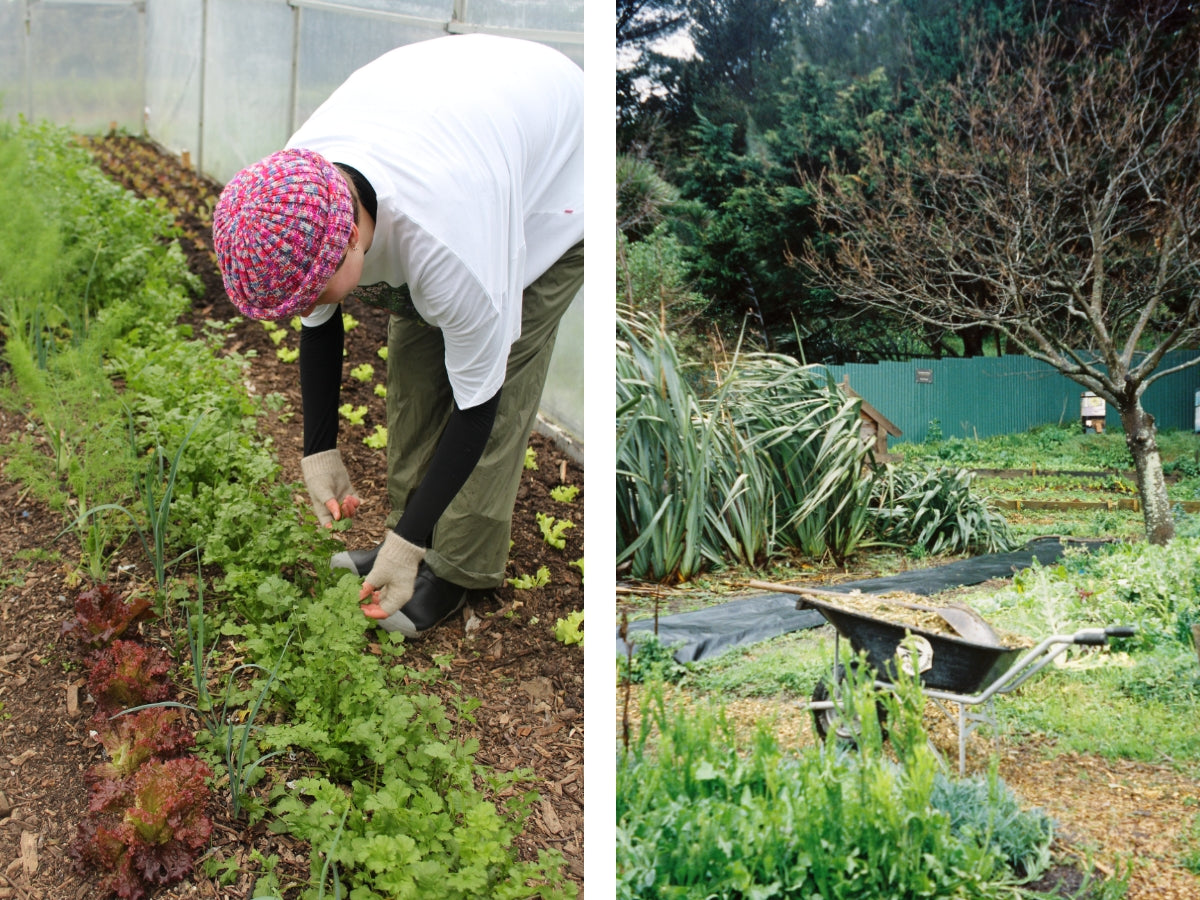
Auckland
1
257 Symonds St, Eden Terrace
O.M.G. (Organic Market Garden) is For the Love of Bees’ model regenerative organic urban farm, nestled on the edge of Auckland City centre.
Their vision is to enable communities to have access to local, fresh, affordable produce within walking distance, grown in a way that helps heal the planet. A centre of regenerative learning, their onsite farmers run volunteer working bees weekly, and offer a new Earthworkers Programme to train the next generation of regenerative urban farmers.
Contact: omg@fortheloveofbees.co.nz
2
Unitec Institute of Technology, Mt Albert
Located on Unitec Mt Albert campus, Sanctuary Mahi Whenua is home to more than 400 species of plants and trees.
Since 2011, the space has operated as a successful organic community garden and food forest, with over 60 members and their families directly involved. The history of the Sanctuary Mahi Whenua highlights the importance of cultivating plants and food in this area throughout human settlement. The rich history tells a narrative of a space that has been used for centuries to provide and nurture surrounding inhabitants.
Join volunteers and the tiaki of the garden for their working bees, held on Sundays monthly.
Contact: contact@sanctuaryunitec.garden
3
132 Hukanui Cres, Herne Bay
Set on 4.5 acres of Hukanui Reserve, Kelmarna works to rebuild connections between people and food by championing and demonstrating a regenerative local food system that supports climate change mitigation, urban resilience and community wellbeing.
Their urban farm has a range of farming operations including vegetable gardens, a food forest, bee keeping, chickens, composting and paddocks - all serving as a basis for educational programmes and horticulture therapy for the community.
Contact: hello@kelmarnagardens.nz
4
Seven Locations
Across seven parks in Tāmaki Makarau, Auckland Teaching Gardens empower and support whanau and the community by providing access to low cost and nutritious home grown produce.
Working with schools across the seven locations, Auckland Teaching Gardens deliver personalised educational programmes. They help people who want to learn how to grow their own food, who want to maintain food security, and people looking to participate in local community initiatives.
Become a gardener, a volunteer or a mentor to help Auckland Teaching Gardens make a difference.
Contact: atgtinc@xtra.co.nz
Melbourne
1
Stewart St & Roberts St, Brunswick
CERES is an environmental education centre, community garden, urban farm and social enterprise hub spread across four locations, holding a vision for people to fall in love with the earth again.
The CERES Community Garden was one of the first projects at CERES, and over the last 40 years it has inspired many other communities to start their own gardens. Although they are currently at capacity with volunteers, you can show your support by donating or by attending the CERES School of Nature and Climate for one of their educational programs.
Contact: ceres@ceres.org.au
2
Rushall Cres, Fitzroy North
Rushall Garden is part of the North Fitzroy Community Gardens Group (NFCGG), a non-profit organisation that formed in 1997.
Rushall Garden promotes organic gardening as a sustainable community activity based on respect, consideration and cooperation with the whole community. They foster the sharing and development of a diversity of gardening skills, while respecting prior ownership of the land by Indigenous Australians.
You can show your support by attending their monthly volunteer working bees, or by purchasing their first book Plotting - a collection of contributions from the community members of the garden.
Contact: nfcommunitygarden@gmail.com
3
Corner of Shakespeare Grv & Chaucer St
Veg Out is an organic, chemical free community garden run by volunteers, located in St Kilda, Melbourne. With over 140 garden plots, there is a commitment to community, conservation and organic gardening principles. There is no experience necessary to get started, as Veg Out cultivates an environment of learning and shared knowledge.
Volunteer working bees are held on the first Sunday of each month, and you can elect to get a plot of your own by becoming a Friend of Veg Out.
Contact: hello@vegout.org.au
4
106 Elizabeth St, Richmond
Cultivating Community’s mission is to work with diverse and low-income communities to create fair, secure and resilient food systems. Embracing people, place, and culture through food and gardening, they work across several Public Housing Community Gardens across Melbourne.
Get involved by donating or through volunteering your time to their projects - they are currently looking for volunteers for their After School Cooking programme, where children living on public housing estates are taught to grow, cook and share food.
Contact: info@cultivatingcommunity.org.au

Sydney
1
50 Barwon Park Rd, St Peters
Located in St Peters, Sydney City Farm has an educational approach to gardening. Focusing on growing fresh and seasonal produce and minimising waste while using organic growing principles, they offer a space to learn about urban agriculture and sustainable food production.
You can take part in small group horticulture and food production workshops, or volunteer at the farm for education programs and events. Working bees are held Thursday to Saturday weekly.
Contact: cityfarm@cityofsydney.nsw.gov.au
2
Bourke Street Community Garden
103-107 Bourke St, Woolloomooloo
The Bourke Street Community Garden is a place for people to share experience and knowledge with those who are interested in connecting with nature, the environment and each other.
Made up of more than 20 raised garden beds, members of the garden use organic principles to grow a wide variety of vegetables, fruits and herbs. Along with the beds, there are chickens, native bees, a composting system and worm farm, all tended to by members of the garden.
To become a member, get in touch to book an introductory tour of the garden, held on the second Sunday of the month.
Contact: georginabathurst1@gmail.com
3
142 Addison Rd, Marrickville
Addison Road Community Garden is an un-gated community garden located at the Addison Road Community Centre. This well established garden provides opportunities to grow food locally, learn the basics of organic gardening (including propagation and seed saving), and interact with the local community.
If you are interested in volunteering and becoming a member of the garden you can attend one of their working bees held on the third Sunday of every month.
Contact: addison.rd.community.garden@gmail.com
4
138 Glebe Point Rd, Glebe
The Glebe Community Garden has over 40 gardeners involved, sharing a passion for native plants, native bees, flowers and vegetables.
With sustainability at the core of the organic gardens, they use composting and rainwater irrigation, and do not permit pesticides or herbicides to be used.
Beginners are welcome and encouraged to attend the volunteer working bees, held on the second Saturday of each month.
Contact: jmorrisonpyle@gmail.com
